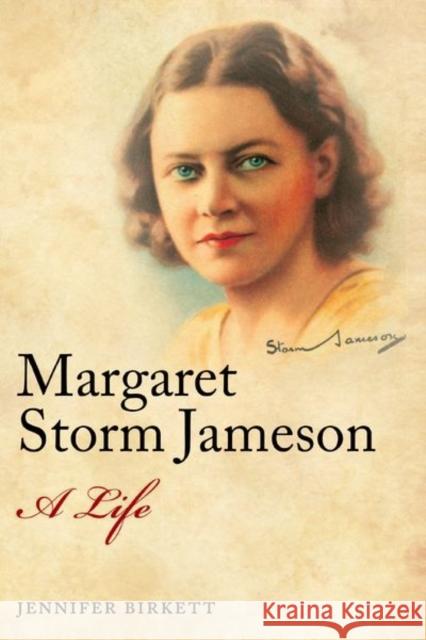Margaret Storm Jameson: A Life » książka
Margaret Storm Jameson: A Life
ISBN-13: 9780199558209 / Angielski / Twarda / 2009 / 400 str.
From her childhood in Whitby to her long old age in Cambridge, the life of Margaret Storm Jameson (1891-1986), novelist, autobiographer, and political activist, spanned almost the whole of the twentieth century. A self-styled Little Englander by nature, and European by nurture, equally at home, or out of place, in the North Yorkshire moors and seascape of her birth, metropolitan London, rural France, and the capitals of Central Europe, she wrote of country, cities and the exile from both with equal knowledge and sympathy. Out of the changing landscapes of her present, she fashioned her vision of the future. The title of her autobiography, Journey from the North, is a simultaneous evocation and erasure of nostalgia for lost commonality, and in her long life as writer and activist, President of wartime PEN (the association of Poets, Essayist, Novelists) committed to the values of freedom and social justice, she fought to reconcile the conflicting forms of emergent modernity. Her own journey is the generic experience of twentieth-century Britain, and the England she urges on her contemporaries is one that shares the life and mind of Europe. The present book traces the history of that shared experience. It recovers, through her writing, the aspirations and the disappointments of the generation of socialists that was Class 1914. The soldiers returning from the front in 1918, to unemployment and the General Strike of 1926, fight in 1940 alongside Frenchmen, and against Germans, who are victims of the same system: class conflict, nationalist rivalries, imperialist ambition, all for Jameson have the same defining economic horizon. At the end of the odyssey the stark alternatives take shape: Washington or Moscow, the madness of American capitalism, or the oppression of Stalinist Communism.
Alongside the narrative of Jameson's life, and the experiences as daughter, wife, and mother that shaped her personality and her career, the book explores her concern with issues of culture and society, cultural memory, and cultural landscapes, her fascination with aesthetic form and the relation of writing to politics, her insight into the materiality of words, and her persistent probing of the nature of the writing subject. It draws on unpublished archive material and brings new research on neglected areas of cultural history into conjunction with literary-critical analyses of Jameson's novels and studies of her journalism and essays. There is an extensive Bibliography of her work.











